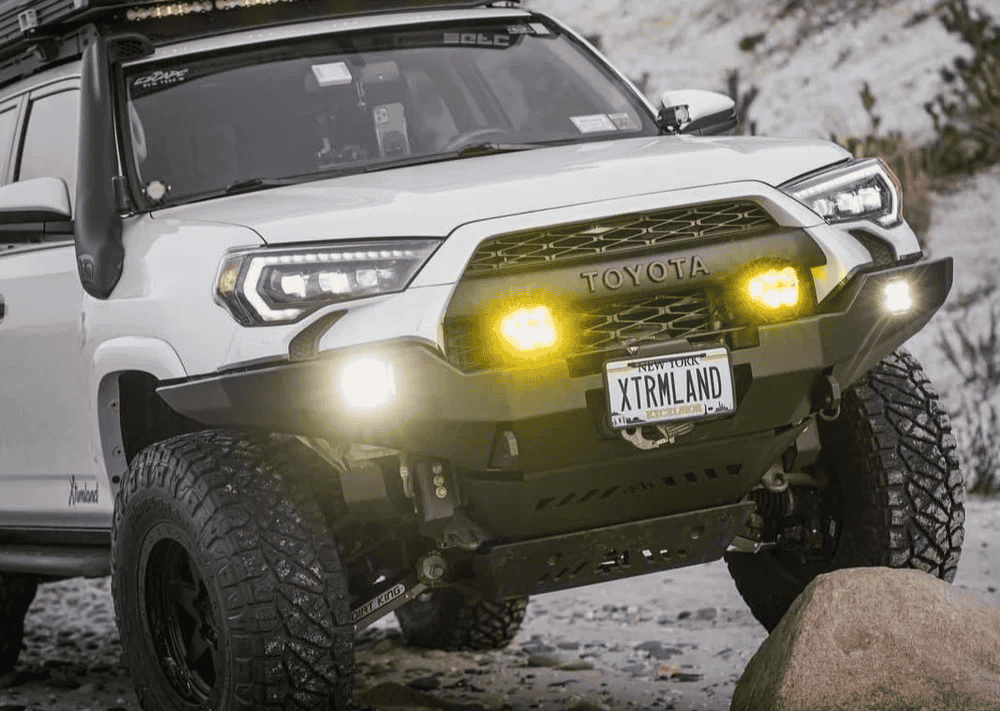Overland Vehicles

When people search earthroamer rental price, they are usually testing the waters before committing to a purchase or an expedition truck build. Published rates from high end rental outfits tend to sit in a broad band from about fifteen hundred to thirty five hundred per night. Expect three to seven night minimums, a steep security deposit, and strict insurance requirements. Mileage caps, generator hours, cleaning fees, and delivery charges can add up quickly, so the true trip budget usually lands well above the headline nightly price.
Availability is another real world factor. These vehicles are rare, and seasonal demand clusters around school breaks and summer windows. Booking months ahead is common. Pick up logistics also matter because many pools are in a single metro area rather than near your trailhead. In short, the math is simplest for a short bucket list trip. Longer itineraries begin to look like ownership costs compressed into a few weeks.
The last variable is the itinerary itself. Remote routes with long dirt stretches and steep grades can be within the wheelhouse, but trip pace changes when you are driving a heavy expedition platform. Plan fuel stops, water refills, and turnaround options with more margin than a compact van would need.
Rates in the premium category reflect the vehicle cost and low fleet volume. Minimums prevent high wear from short weekend churn. Ask for a full estimate that includes every fee so you can compare apples to apples.
Insurance riders, high deductibles, and refundable deposits are typical. Cleaning, prep, delivery, and excess mileage charges may apply. Read the fine print before you commit.
Expect limited inventory and peak season pressure. Build your dates around the vehicle, not the other way around, and confirm pickup logistics early.
A balanced earthroamer review starts with what it does exceptionally well. Off grid capability is the headline. Large battery banks, solar, alternator charging, and diesel powered systems keep climate control and appliances running far from hookups. High clearance, four wheel drive, and purpose built suspension make rough roads manageable at a careful pace. Interior craftsmanship, storage planning, and durable materials support extended travel.
Tradeoffs come from physics and footprint. Weight demands respect on loose surfaces and long descents. Overall size affects where you can turn around, where you can park, and how you navigate tight towns. Highway comfort is strong for the class, yet you will never forget that you are piloting a serious truck. Maintenance and consumables cost more than a smaller van or an SUV based setup.
Living space is optimized for a couple or a small crew. Systems are thoughtfully integrated, and the cabin remains comfortable in a wider temperature range than most campers. If your plan is to stay deep, stay long, and stay comfortable, the formula works. If your plan includes frequent urban visits, parking garages, or tight forest spurs, a smaller platform may be friendlier.
Energy storage, high output charging, and efficient climate systems are the backbone. Water capacity and filtration extend time away from town. The package excels when you prioritize remote stays.
Ride quality is composed for a heavy duty platform. Still, size dictates pace and route choice. Scout trailheads and tight trail spurs before you commit.
Functional galley layouts, smart storage, and durable finishes shine. Everything has a place, which keeps rattles down and daily life smooth.
The phrase camper with car inside sparks curiosity because it blends base camp comfort with independent mobility. In reality, only a few luxury motorcoaches carry a small sports car in a garage bay, and those are specialized designs with unique chassis and price tags. In the expedition truck world, a car inside RV setup is not typical due to axle ratings, space constraints, and ramp geometry.
More common solutions include flat towing a compact car, towing a lightweight trailer, or choosing a toy hauler that trades living space for a gear garage. Each path changes the turning radius, departure angle, and campground options. Before chasing the idea of a vehicle inside the coach, map your daily loops. Many travelers find that a solid bike rack, e bikes, or a small trailer meet the need without the complexity of a full onboard garage.
For pure backcountry travel, simplicity pays. Fewer moving parts and a single powertrain make troubleshooting easier on remote roads. For mixed city and camp living, a towed runabout can be handy if you are comfortable with the added length and storage needs.
Looking for an expedition grade build without the rental scramble? See how we approach capability and comfort on the Overland Rigs page. If you want a system tailored to your routes and gear list, explore our Custom Overland Upfit process. For a sense of how we work and why travelers trust us, visit Why Choose OZK Customs.
The next step is simple. Tell us where you roam, how many people ride along, and which comforts matter most. We will design a rig that fits the way you actually travel, built and handed off at our Fayetteville shop with a sendoff that gets you dialed before you turn onto the highway.
Ready to plan a purpose built overland rig instead of chasing scarce rentals? Tell us how you travel and we will design a system around your terrain, crew size, and gear. Tap the form and get a custom plan, transparent pricing, and a build timeline from the OZK Customs team in Fayetteville.
ADDRESS:
6159 E Huntsville Rd, Fayetteville, AR 72701
PHONE:
(479) 326-9200
EMAIL:
info@ozkvans.com